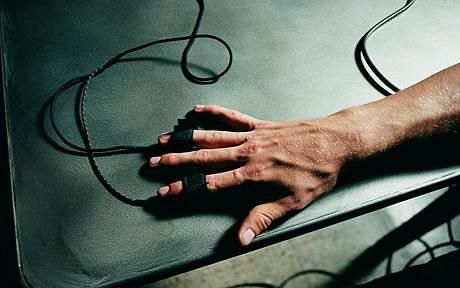
The devices are for the first time being used by detectives for pre-conviction testing in the UK in a trial which could pave the way for their introduction across the country.
Hertfordshire police completed a successful pilot scheme last month in which 25 sex offenders were tested using polygraphs.
The scheme led to many of the "low level" offenders being reclassified as posing a more serious risk to children than originally thought.
The force has now been given a further 12 months to experiment with the devices while senior officers across Britain are investigating ways the technology could assist in solving cases.
The Association of Chief Police Officers has established a working group to advise forces contemplating using lie detectors.
Polygraphs are used routinely by police in the United States but they have never taken off among British police.
Until now, they have most prominently been used to settle domestic disputes on ITV's daytime television programme The Jeremy Kyle Show.
Detective Chief Inspector Glen Channer, head of Hertfordshire police's child protection unit, said lie detectors were a welcome addition to the force's "armory of investigative techniques".
He said the devices gave police better insight into the risks posed by offenders, enabling officers to prioritise certain cases over others to improve efficiency.
However, he insisted that the tests are never solely relied upon as evidence and were only carried out by accredited experts.
He told The Times: "It's about as removed from the Jeremy Kyle view of lie detector testing as real policing is to Miss Marple."
At least one other force is now considering trialling lie detectors in pre-conviction situations, it is understood.
The Ministry of Justice is expected to decide next year whether sex offenders should be required to take routine lie detector tests as a condition of their parole following several years of debate among ministers on the idea.



Reader Comments
to our Newsletter